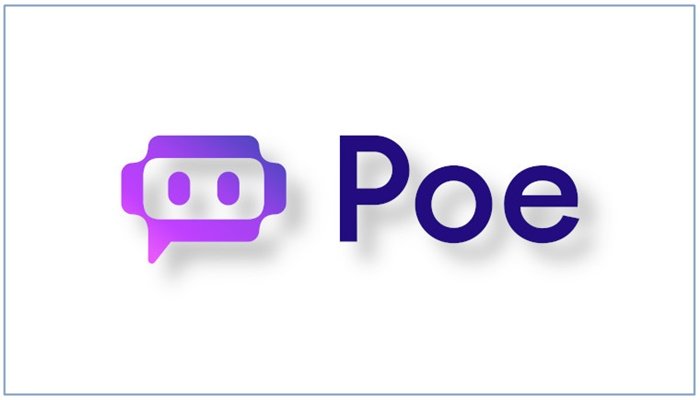
Active Directory (AD) is a critical part of many organizations’ IT infrastructure. It acts as a centralized service that helps manage user accounts, permissions, and access to resources. With the rise of cyber threats, ensuring the security of Active Directory is essential. One effective way to maintain security is through regular health checks. This article will explore what health checks are, their importance in maintaining AD security, and how they can help prevent unauthorized access and data breaches.
Understanding Active Directory
Before delving into health checks, it is essential to understand what Active Directory is and how it functions. Active Directory is a directory service developed by Microsoft for Windows domain networks. It is used for various purposes, including:
- User Management: Creating and managing user accounts and passwords.
- Access Control: Defining user permissions for accessing network resources.
- Policy Enforcement: Applying security policies across the organization.
AD stores information about members of the domain, including users, groups, computers, and other devices. It uses a hierarchical structure, which makes it easier to manage resources efficiently.
What Are Regular Health Checks?
Regular health checks involve routine assessments of Active Directory to gauge its security posture and overall performance. These evaluations are crucial for identifying vulnerabilities, misconfigurations, and potential security risks before they can be exploited by attackers. Health checks usually encompass various components, and leveraging the expertise of Active Directory consultants can provide additional insights and ensure a thorough evaluation. Health checks typically include the following components:
- Account Audits: Reviewing user accounts to ensure only authorized personnel have access.
- Password Policy Assessments: Checking if password policies are enforced correctly and if passwords meet security standards.
- Group Policy Reviews: Analyzing group policies to ensure they are applied consistently and effectively.
- Permissions Review: Evaluating access permissions to resources to ensure they align with user roles.
- Monitoring for Unusual Activity: Keeping an eye on logs for any suspicious activity or access attempts.
Why Are Regular Health Checks Important?
Regular health checks are crucial for several reasons:
1. Identifying Vulnerabilities
One of the main purposes of health checks is to identify vulnerabilities within the Active Directory environment. Cyber attackers are constantly looking for weak points to exploit. By regularly assessing the security posture of AD, organizations can discover these vulnerabilities and address them promptly. For example, health checks can reveal accounts with weak passwords or excessive permissions.
2. Maintaining Compliance
Many industries have strict regulations regarding data protection and privacy. Regular health checks help ensure that organizations comply with these regulations. Non-compliance can lead to severe penalties, reputational damage, and loss of customer trust. Health checks can confirm that security policies are in place and being followed.
3. Enhancing Security Awareness
Conducting regular health checks raises awareness of security issues among IT staff and employees. It reinforces the importance of security measures and encourages a culture of vigilance. When employees understand the significance of security practices, they are more likely to adhere to them.
4. Facilitating Incident Response
In the event of a security breach, having a robust system of regular health checks can facilitate a faster and more effective incident response. By maintaining accurate records and logs, organizations can quickly identify the source of a breach and take necessary actions to mitigate damage.
5. Improving System Performance
Health checks are not only focused on security; they also play a crucial role in enhancing system performance. Regular assessments can help identify performance bottlenecks, such as slow logon times or excessive resource usage. By proactively addressing these issues, organizations can significantly improve the overall user experience. Collaborating with Active Directory consultants can further enhance these efforts, providing expert insights and recommendations tailored to specific needs.
How to Conduct Regular Health Checks
Conducting regular health checks on Active Directory involves a systematic approach. Here are the steps organizations can follow:
1. Establish a Schedule
Setting a regular schedule for health checks is crucial. Depending on the organization’s size and complexity, checks can be performed monthly, quarterly, or annually. A consistent schedule ensures that security assessments are not overlooked.
2. Define Assessment Criteria
Organizations should define clear criteria for their health checks. This may include specific security policies, user account management processes, and compliance requirements. By having established criteria, organizations can focus on the areas most critical to their security posture.
3. Utilize Automated Tools
There are various tools available that can assist in conducting health checks on Active Directory. These tools can automate the assessment process, making it more efficient and less prone to human error. Some popular tools include:
- PowerShell Scripts: These scripts can perform various assessments and generate reports.
- Third-Party Security Tools: Many vendors offer specialized tools for AD security assessments.
4. Engage Active Directory Consultants
To ensure thorough health checks, organizations may consider engaging Active Directory consultants. These experts can provide insights into best practices and help identify areas for improvement. They can also assist in the implementation of security measures and policies tailored to the organization’s needs.
5. Document Findings and Remediate Issues
After conducting health checks, organizations should document their findings. This documentation should include identified vulnerabilities, recommended actions, and timelines for remediation. Addressing the identified issues promptly is essential to maintain a secure environment.
Common Issues Found During Health Checks
While conducting health checks, organizations often encounter common issues that can compromise Active Directory security:
1. Inactive Accounts
Inactive accounts pose a significant security risk. They may be used by former employees or automated processes that are no longer necessary. Regular health checks help identify these accounts so that they can be disabled or removed.
2. Weak Passwords
Weak passwords are an open invitation for attackers. Health checks should assess password strength and compliance with security policies. Organizations should encourage users to adopt strong password practices, such as using a combination of letters, numbers, and special characters.
3. Excessive Permissions
Users with excessive permissions can lead to potential data breaches. Regular audits of permissions can ensure that users have access only to the resources they need for their roles. Implementing the principle of least privilege is essential for maintaining security.
4. Misconfigured Group Policies
Group policies govern various security settings within Active Directory. Misconfigurations can create vulnerabilities. Regular reviews of group policies ensure they are applied correctly and consistently.
5. Insufficient Monitoring
Monitoring for unusual activity is crucial for detecting potential security incidents. Health checks should assess the organization’s monitoring capabilities to ensure they are adequate. If monitoring is insufficient, organizations may miss critical security events.
Conclusion
Regular health checks play a vital role in maintaining the security of Active Directory. By identifying vulnerabilities, ensuring compliance, and enhancing security awareness, organizations can protect their IT infrastructure from cyber threats. Establishing a routine for health checks and engaging experts, such as Active Directory consultants, can significantly improve the overall security posture. As cyber threats continue to evolve, the importance of regular health checks will only grow, making them a fundamental practice for organizations that rely on Active Directory.






